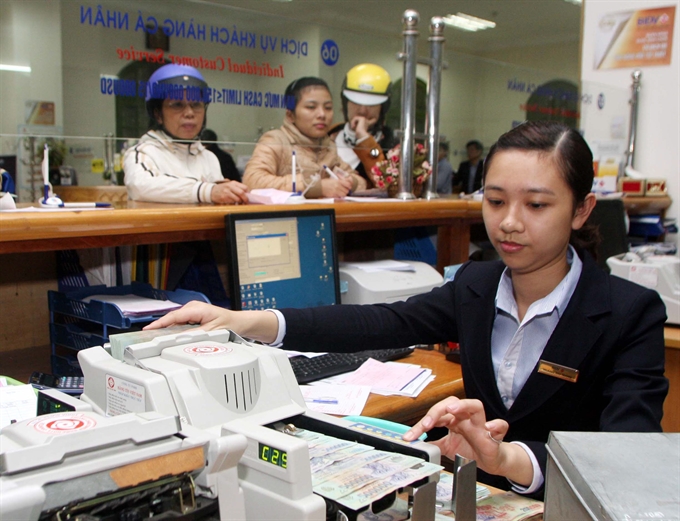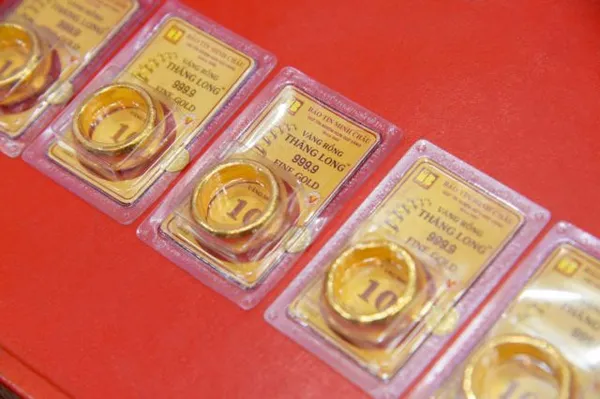 Economy
Economy

Though the bad debt ratio of the banking system has been reported to drop to below 3 per cent of its outstanding loans, how to deal with the amount of bad debt stuck at the Việt Nam Asset Management Company (VAMC) is still a troublesome job.
 |
| Clients asking for loans at a branch of the Bank for Investment and Development of Việt Nam in central Quảng Trị Province. A large amount of banks’ bad debts have been bought by VAMC since it was established. - VNA/VNS Photo Trần Việt |
HÀ NỘI – Though the bad debt ratio of the banking system has been reported to drop to below 3 per cent of its outstanding loans, how to deal with the amount of bad debt stuck at the Việt Nam Asset Management Company (VAMC) is still a troublesome job.
From 2013 to June 18, 2016, VAMC bought VNĐ247 trillion (US$10.9 billion) worth of bad debt from credit institutions but only collected VNĐ31.2 trillion ($1.38 billion).
Many international institutions and foreign investors came to VAMC thinking buying its bad debts would be a transparent and smooth process thanks to favourable legal procedures, the company’s chairman Nguyễn Quốc Hùng told VietnamPlus – an online newspaper of the Vietnam News Agency.
However, after studying legal documents related to debt trading and settlement, land ownership and enterprise restructuring, they realised VAMC lacks the rights to determine debt trading and collateral selling.
Therefore, they have yet to offer any deal, Hùng said.
In fact, all bad debts sold to VAMC are overdue and almost impossible to collect on because they were guaranteed by property projects or assets that will only be completed in the future.
Under the Law on Real Estate Business, the transfer of property used as collateral is limited, thus the amount of bad debts settled was also small.
Lê Thành Trung, deputy general director of the Hồ Chí Minh City Development Commercial Joint Stock Bank (HDBank), said the procedure of applying for land-use right certificates or transfer of land use rights and ownership of assets attached to land was very time-consuming and complicated.
In addition, the confiscation of collaterals had not been regulated in the Civil Code, causing difficulty in offloading non-performing loans, Hùng said.
Article 301 of the Civil Code 2015 regulates that collaterals holders are obliged to provide the assets to creditors for settlement but, he said, if the debtors do not voluntarily hand over the collaterals, the only solution for creditors is to sue them - also a time-consuming procedure.
The head of a commercial bank who requested anonymity said that his bank had been struggling with a steel enterprise for four years to collect payment.
Trung emphased that it was necessary to provide a mechanism allowing creditors to the right to confiscate mortgages.
Trần Du Lịch, a member of the National Monetary Policy Consultancy Council, told Tiền Phong (Vanguard) newspaper that he had proposed to the Government that it review the laws related to bad debt handling, but so far there had not been any improvement.
Economist Nguyễn Trí Hiếu said that VAMC needed a separate law with specialised mechanism to deal with the large amount of bad debt stuck at the company because it was impossible to wait for amendments of each law.
Hùng said despite the obstacles, the VAMC determined to buy VNĐ2 trillion worth of bad debts this year.
VAMC had also completed procedures of selecting five professional auction organisations and five price appraisal institutions to prepare for the upcoming auctions of collateral assets, he said.
He said he hoped the Government’s decree on debt trading businesses would have a positive effect on the debt trading market and help speed up the bad debt settlement process. – VNS









